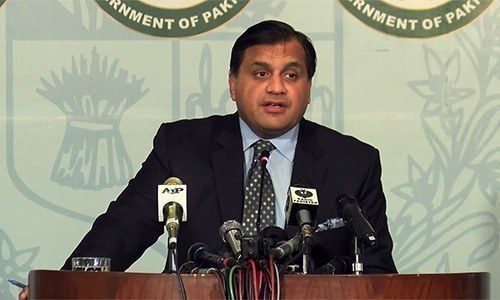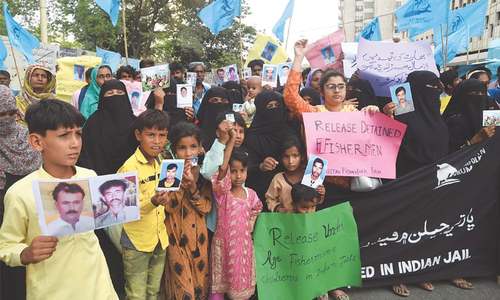Pakistan has hopes for "re-engagement" with India after the country's general elections are over, and has indicated that structured dialogue would enable the two countries to understand mutual concerns, resolve outstanding disputes and "build the edifice of durable peace and security in the region", The Times of India reported on Sunday.
The publication cited an interview by Pakistan's outgoing high commissioner to India, Sohail Mahmood, given to the Press Trust of India, during which the diplomat emphasised the importance of diplomacy and dialogue in improving relations between the two countries.
"We hope for re-engagement after the elections in India. Diplomacy and dialogue are indispensable," he said.
Relations between Pakistan and India reached a crisis point in February after a suicide bombing in occupied Kashmir's Pulwama killed more than 40 Indian paramilitary police.
New Delhi had immediately hurled allegations of Pakistan's involvement, whereas Islamabad strongly rejected the claim and asked for "actionable evidence".
Subsequently, on Feb 26, Indian warplanes violated Pakistani airspace and allegedly struck what New Delhi claimed was a Jaish-e-Mohammad (JeM) training camp — a claim never proved by India.
The next day, Pakistani jets fired at various targets from across the Line of Control. As the Indian Air Force engaged the Pakistani jets, the PAF shot down two Indian warplanes ─ one of which crashed in Azad Kashmir ─ and captured an Indian pilot, Wing Commander Abhinandan. The pilot was released on March 1 as a gesture of peace by the Pakistani government.
Mahmood, who will now be taking on the mantle of Pakistan's next foreign secretary, said dialogue was the only means through which both sides could understand each other's concerns.
"Sustained engagement and structured dialogue would enable the two countries to understand mutual concerns and differences, resolve outstanding disputes and build the edifice of durable peace, security, and prosperity in the region," he said.
The outgoing envoy also stressed the need to review the narrative prevailing about Pakistan in India.
Take a look: The battle of narratives
"A narrative is needed that captures the reality in Pakistan objectively and more fully. A narrative that also helps recognise opportunities for peaceful, cooperative and good neighbourly relations," he said.
"We must strive for stable peace, equal security and shared prosperity for ourselves and the region," the high commissioner added.
As another gesture of goodwill, the Foreign Office had announced earlier in April that Pakistan will be releasing 360 Indian prisoners over the course of the month.
The initiative was followed by the Pakistan High Commission in New Delhi issuing 2,200 visas to Sikh pilgrims from India to participate in the annual Baisakhi celebrations being held in Pakistan from April 12 to 21.
Two weeks after the Balakot strike, the two sides had held discussions to finalise the modalities surrounding a corridor connecting Gurdwara Darbar Sahib in Pakistan's Kartarpur to Dera Baba Nanak in India's Gurdaspur district, a project inaugurated by Prime Minister Imran Khan last year.
In pictures: Sikh yatris, Indian ministers attend Kartarpur corridor groundbreaking ceremony
When asked about the Kartarpur corridor project, Mahmood said: "The government of Pakistan is proceeding in full measures to complete the physical infrastructure on its side and it is hopeful that the modalities will be mutually agreed between the two sides in good time before November 2019."
















































